Cargando...
Recursos educativos
-
Nivel educativo
-
Competencias
-
Tipología
-
Idioma
-
Tipo de medio
-
Tipo de actividad
-
Destinatarios
-
Tipo de audiencia
-
Creador
Lo más buscado
- Dictado de palabras agudas
- Dibujos con colores primarios
- Repaso de italiano
- Orientación y tutoría
- Juegos matemáticos primero
- Alimentación saludable en sexto
- Biosfera para bachillerato de modalidad
- Dividir por cifras
- Animales dibujados para P3
- Actividades de lógica en primero
- Actividades ángulos primaria
- Cuentos cortos para dormir
- Teoría del arte
- ejercicios ortografía
- Letras T
-

Answer. The monarchy and the feudal nobility
EduBook Organización
- 11816 visitas
Remember what you have studied in this section and answer the questions: What position did the monarch have in feudal society? What was the basis of his authority? What powers did the king have? What…
-
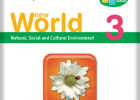
New World 3. Natural, Social and Cultural Environment
EduBook Organización
- 1 lo usan
- 10606 visitas
D. Living things 1. Human beings 2. Looking after my body 3. The five senses 4. Animals 5. Plants G. Glossary C. Chants 6. Water 7. Landscapes 8. Maps 9. Villages, towns and cities 10. Living in society…
-
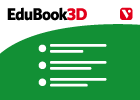
The organisation of urban areas
EduBook Organización
- 8452 visitas
Today, globalisation determines how a territory is organised, from both a cultural and a socio-economic perspective. Urbanisation, therefore, is no longer just about large concentrations of people, but…
-
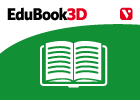
Before you start - Islam and Al-Andalus
EduBook Organización
- 4 lo usan
- 6861 visitas
Didactic objectives Describe the main characteristics of Islam and its influence in the organisation of Islamic societies. Learn the holy places of Islam and their cultural significance. Explain the…
-

Self-evaluation 1 - Prehistory
EduBook Organización
- 1 lo usan
- 7377 visitas
Complete the text with the missing words: The historical period before the introduction of writing into human society is known as ; it is divided into three ages: the Age, the Neolithic Age and the Age.…
-

Check. The Germanic kingdoms
EduBook Organización
- 7424 visitas
Review what you have studied and answer the questions: What type of government did the Germanic peoples have? What elements of Roman organisation did they maintain? How did life change after the fall of…
-
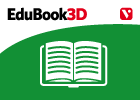
The evolution of human societies - Human Societies
EduBook Organización
- 6692 visitas
Human societies have changed and evolved throughout history. Today, different societies around the world have very different levels of development. A society's level of development depends on…
-

Check. The industrialisation of European societies
EduBook Organización
- 1 lo usan
- 6239 visitas
Remember what you have studied in this unit and answer the questions: What is meant by the Industrial Revolution? What changes did it cause in agriculture and demography? Explain what innovations led to…
-
Final self-evaluation 3.07 - Medieval Cities
EduBook Organización
- 5856 visitas
Which of the following statements are true or false?: In the cities, the artisans of each profession were grouped into guilds. A new social class, the bourgeoisie, emerged in the new urban society. The…
-

Self-evaluation 3 - The Roman Empire
EduBook Organización
- 5624 visitas
Complete these sentences about early Roman society with the missing words: Roman citizens were divided into two classes: the minority of nobles, known as , and the lower class majoriy, known as . The…
Te estamos redirigiendo a la ficha del libro...











